'Lost Tomb of Jesus' is old news, scholars say
By Peter Smith
psmith@courier-journal.com
The Courier-Journal
http://www.courier-journal.com/apps/pbcs.dll/article?AID=/20070303/NEWS01/703030464/1008
For three decades, Joseph Trafton has been studying artifacts like the Dead Sea Scrolls, and he keeps up on what has been dug up in the Holy Land.
So the Western Kentucky University professor was amazed at this week's breathless news reports on something scholars had known about for years -- a tomb near Jerusalem containing burial boxes engraved with names that appear to include Jesus, Mary and Joseph.
The uproar stems from a new documentary, "The Lost Tomb of Jesus," which airs tomorrow night on the Discovery Channel -- and makes claims that challenge the traditional Christian belief in the Resurrection.
But Trafton notes that most archaeologists have largely rejected the claims.
The names Jesus, Joseph and Mary were common among ancient Jews, for example, and finding them in an ancient tomb is like going to Cave Hill Cemetery and seeing names like "John" and "Smith," said Joel Drinkard, professor of Old Testament, Hebrew and archaeology at Southern Baptist Theological Seminary in Louisville.
Drinkard, who directs the seminary's museum of biblical-era artifacts, has been on his share of archaeological digs in the Middle East. The painstaking work of archaeologists, he said, is to sort through often ordinary artifacts and slowly build a picture of what life was like then.
"We have a culture in America that likes the sensational," Drinkard said. "The Indiana Jones-type movies are wonderful as thrillers, but they're horrible at showing archaeology as it really is."
Even so, Trafton and other religion scholars say their field gets a boost from media extravaganzas announcing new or not-so-new claims.
Before this latest documentary produced by Oscar-winning director James Cameron, there was the long-lost "Gospel of Judas." There was a burial box allegedly linked to Jesus' brother James. And there were claims in "The Da Vinci Code" of a church conspiracy to hide Jesus' true life as a mortal who married and had a family.
"These kinds of claims and specials and books can make a connection that most of us academics fail at," said Roy Fuller, who teaches at Indiana University Southeast and other area schools.
Students in his classes brought up the news of Cameron's announcement on Monday. "They wanted to know what was going on," he said.
Fuller, who lectured to a packed house at the Speed Art Museum last year before the release of "The Da Vinci Code" movie, seizes upon such events as "opportunities" to teach people about what scholars really think.
So does Ben Witherington III, a professor at Asbury Theological Seminary in Wilmore, Ky., who has written books on "The Da Vinci Code" and the burial box linked to James.
He believes that some people making such claims want to disprove, or prove, a biblical account, and that many people are quick to believe them because they know little about the biblical era and how historians weigh evidence.
Fuller agreed, although he would argue that the daring claims are not always so daring.
For example, if Jesus were married, as suggested in "The Da Vinci Code" and "The Lost Tomb of Jesus," that wouldn't necessarily contradict his divinity.
And while belief in Jesus' physical resurrection is widespread among Christians, Fuller said, the Cameron program provides an opportunity to teach people about another viewpoint -- that Jesus rose from the dead spiritually but not physically.
"Let's suppose for a moment that we could prove there's a tomb for Jesus somewhere and bones in an ossuary," he said. "For some Christians that would be heresy and blasphemy and wrong, and for others I don't think it's going to be a big shock. They have a faith that doesn't necessarily depend on that."
While some Gospel passages indicate a spiritual resurrection, Drinkard said, "putting all of the texts together, I just hold to that more traditional understanding of a physical resurrection."
Tomorrow's documentary claims it is almost statistically certain that the names of the people in the tomb that's been found were part of Jesus' family -- with added hints that perhaps the son of a married Jesus and Mary Magdalene is included.
"My job is not to prove anything, my job is to report," documentary director Simcha Jacobovici said in a promotional video. "… It's a hot story. It's not about an Egyptian mummy. It's Jesus of Nazareth."
The tomb yielded several ossuaries, or boxes in which ancient Jews interred bones after the flesh of a deceased person decayed.
But the documentary's claims have been met with widespread scorn from scholars.
"It is a good example of a first-century tomb" -- and that's about all, Drinkard said.
When the tomb was first discovered years ago, he said, it "may have gotten a brief notice in one of the journals somewhere, but no more attention until someone comes along and says, 'Here's a way I can sensationalize it.' I don't think it's accidental it comes just as we're leading up to Easter."

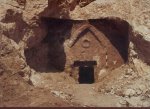
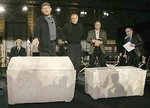






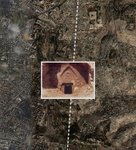


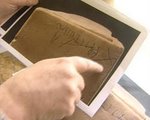






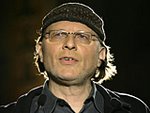

















No comments:
Post a Comment